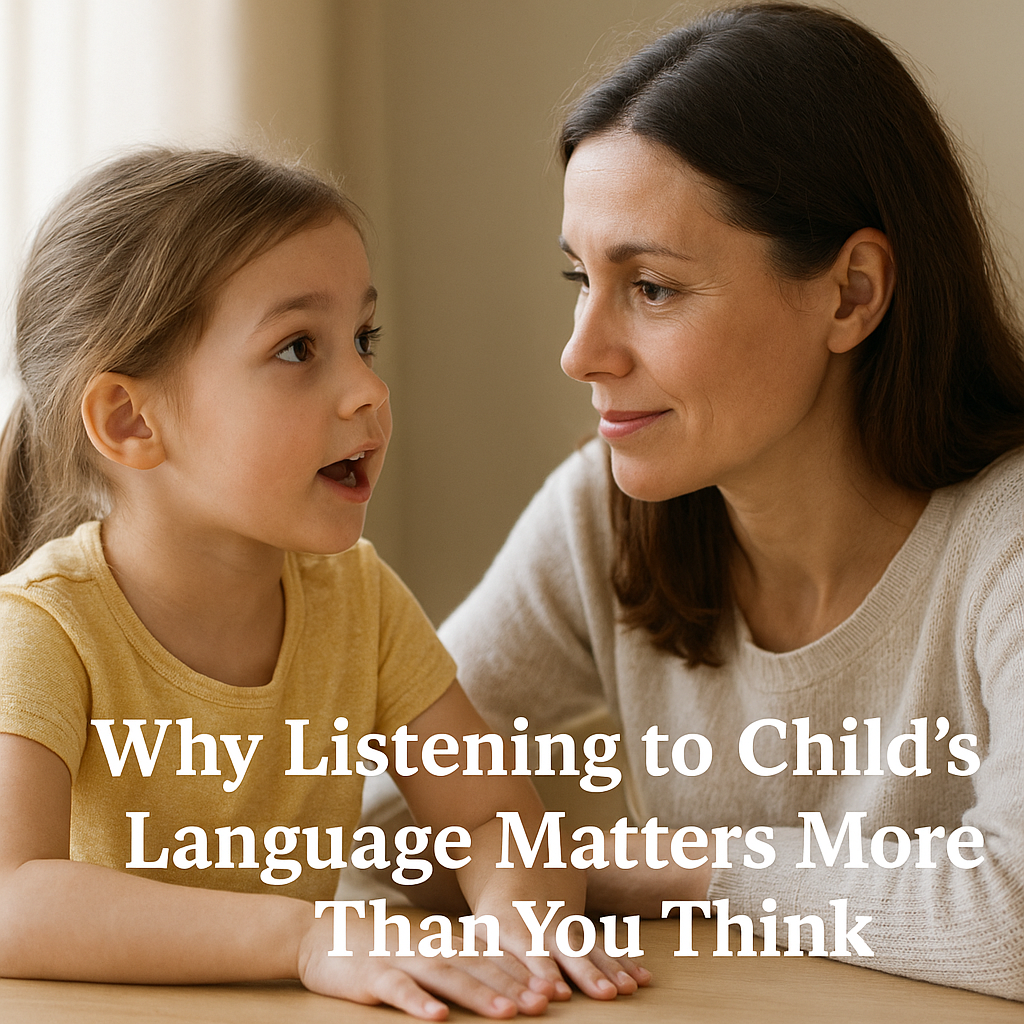
“Why Listening to a Child’s Language Matters More Than You Think”
Share
Introduction
Children do not simply use words to communicate—they use them to shape their world, process emotions, and connect with others. For parents and caregivers, paying close attention to how children speak is more than a listening exercise; it is a window into their inner world. What truly matters is not how many words a child can say, but how adults respond and validate those words.
Language as an Emotional Window
A child’s words often carry more meaning than we assume. For instance, a strong “No!” may not just be defiance; it could represent fear, frustration, or even an early push for independence. Researchers highlight that acknowledging the feelings behind a child’s words helps children develop better emotional regulation. When adults listen without judgment, children learn that their emotions are valid and worth expressing.
Brain Development and Language
Language exposure is one of the strongest predictors of cognitive development. A 2020 study published in Developmental Science found that children whose parents responded actively—by repeating, expanding, or asking questions—showed greater improvements in memory and problem-solving skills. Conversations are not just exchanges; they are brain-building exercises that lay the groundwork for lifelong learning.
Social Growth Through Conversation
Talking is also practice for life. In playgroups or family settings, language teaches children about cooperation, patience, and empathy. Waiting for their turn in a conversation, understanding another child’s words, or resolving conflicts with language instead of action—these are all crucial steps in building social skills. The words children speak (and how adults encourage them) directly shape how they interact with peers.
Parents as Language Role Models
Perhaps the most powerful influence on a child’s communication is the adult’s attitude toward listening. When parents interrupt, dismiss, or correct harshly, children may become hesitant to speak openly. On the other hand, when parents listen carefully, nod, and expand on a child’s thoughts, the child feels empowered. This validation fosters self-confidence and a stronger sense of identity.
Why It Matters for the Future
Listening to a child’s language is not just about the present—it sets the stage for the future. Children who grow up feeling heard are more likely to communicate effectively as adults, maintain healthier relationships, and approach challenges with confidence. Simply put, listening today shapes tomorrow’s leaders, thinkers, and empathetic human beings.
Closing
A child’s language is more than vocabulary; it is a reflection of their heart, mind, and potential. Every time we pause to truly listen, we tell them that their voice matters. And in doing so, we help them build the courage to keep speaking, keep learning, and keep growing.
